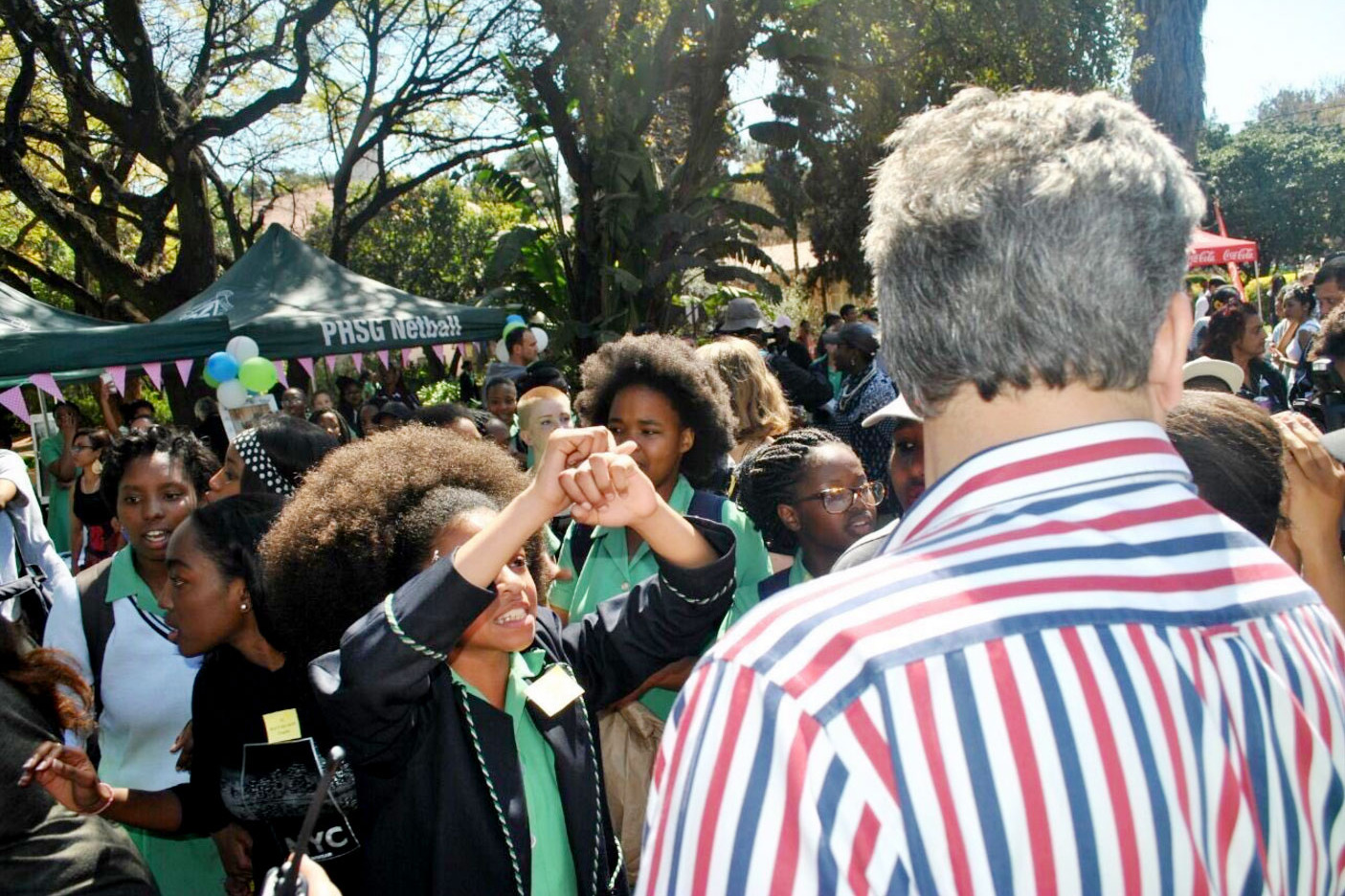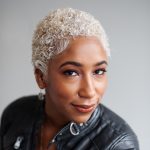
Image credit: Twitter/lennoxbacela
EUROCENTRIC STANDARDS OF BEAUTY invade the lives of people all over the world in much the same way the colonizers did, pillaging self-worth, identity, and free will. They have waged war against blackness in a variety of way, one of the most persistent and pervasive being the focus on eradicating black hair. For years, chemicals have been used to straighten black hair, permanently ridding it of its natural coils, kinks, and curls, requiring tremendous upkeep including treatments, touchups, and restricted behavior like avoiding rain, swimming pools, and other chemicals like bleach and dye. The practice of chemically straightening black hair is so old and normalized that people rarely associate it with the racism that sits at its roots, viewing it as professional, neat, easy to manage, and beautiful. It has become a requirement in many homes, workplaces, and educational institutions, robbing black people of the choice and the right to maintain the natural state of their hair.
It is not unusual for black people to be told that their hair is inappropriate, unacceptable, or untidy. It is unsurprising when black hair is compared to bird nests, dog food, and mops. European standards set as benchmarks for black people have, for far too long, been normalized, accepted, and gone uncontested on the global stage. Every now and then, however, a case is caught in the wind, spread all over the world, and made the basis of a renewed movement for black people to wear their natural hair without incident. The most recent case of this kind comes from Pretoria Girls High School in South Africa, where students rejected racist rules and disrespectful comments about their hair, bans of traditional attire, and demands that they stop speaking their own languages.
The school’s code of conduct stipulates that cornrows, dreadlocks, and braids cannot exceed 10mm in diameter, or the length of the students’ hair. Further, short braids must be held back from the face, long braids must be tied back, and no bead, decorations, or other styles are allowed. Afros are not mentioned in the code of conduct, but students have repeatedly been told that they are “untidy” and “unruly,” and need to be straightened.
Black students from Pretoria Girls High School planned and executed a silent, peaceful march at the school’s Spring Fair on Saturday, August 27. A school gate was closed, splitting the group, and they were confronted by armed security guards. When threatened with arrest, the girls responded, “Arrest us. Take us all!”
A meeting was called and attended by school officials, parents, and students where they were told they had chosen the wrong time and place to protest, and they were causing a disruption. From this point, social media became the tactic the students used to bring attention to their grievances. #StopRacismAtPretoriaGirlsHigh became a space to organize, share news, and stand in solidarity with the students.
A young student named Zulaikha has become the face of the movement. Photographs of her — wrists crossed above her head, hands balled into fists, face as fierce as her Afro — swarmed the internet. The images, confirmation that #BlackGirlMagic is alive and well all over the world, sparked feelings of pride and solidarity, reminding black women of the battles fought and won, and those still being fought today.
Following these actions, Member of the Executive Council of Education Panyaza Lesufi held meetings with the school management team, students, and school governing body. Concerns were raised about the discouragement of use of African languages when white students used Afrikaans, policies and practices concerning black hair, racial abuse by white educators and students, and the drastic response — involving armed security guards — to the peaceful protest. A commitment was made to a formal investigation into the issues raised and a review of the code of conduct which would be work-shopped with all stakeholders, suspending the clauses referencing hair in the interim.
Why are we still having to fight such battles? Why were they not fought a long time ago? It saddens me. But I am so proud and honored to stand in solidarity with these kids because of their loud voices, because of their courage, because of their leadership skills and because of their consciousness.
-Tiisetso Phetla, Pretoria Girls High School Alumnae
All over the world, people are rising up against racism, giving it a name, confronting the perpetrators, and calling upon their communities to join them in taking action to bring it to an end. A similar battle was fought in The Bahamas in 2015 when students were told their natural hair, worn in Afros, were inappropriate. They were told to chemically straighten their hair by the next week of school, and they resisted with a widely backed #SupportThePuff social media movement.
Many people think racism is always overt, ignoring its subtle existence in employee handbooks, student codes of conduct, and organizational policies. Exposure to the historical and present-day movements — like #BlackLivesMatter — give people the inspiration and practical examples they need to take action in addressing the racism they face in their daily lives. #BlackGirlMagic is in full effect at Pretoria Girls High School. The students’ petition calling for an end to racism in the code of conduct, reprimand of teachers enforcing racist policies, and protection of students who have spoken up had over 31,000 signatures at the time of writing.
















